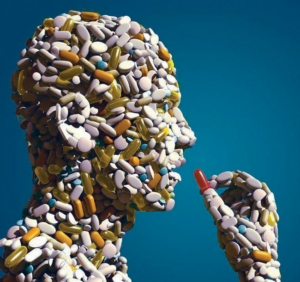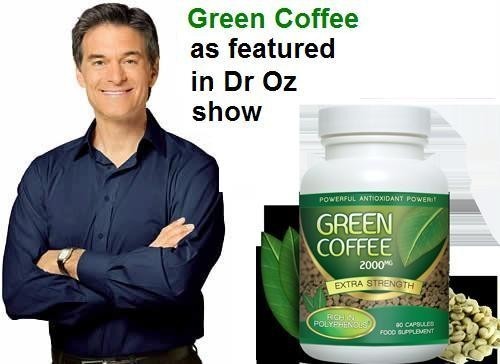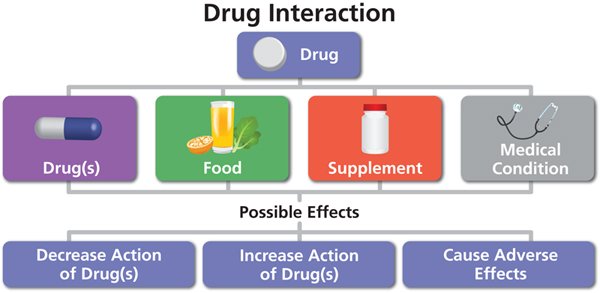Dietary supplements — are they safe?
Caveat Emptor!
As reported in Ars Technica, in the U.S. alone there more than 90,000 vitamin and dietary supplements available as pills, powders, tinctures, drinks, and bars. These products carry a myriad of claims including stronger bones, quick weight loss, “effortless” muscle building, improved digestion, more energy, and of course, bett er sex.
er sex.
In February 2015, the Center for Science in the Public Interest reported that the New York State Attorney General had commissioned an independent panel to test popular herbal supplements sold at major chain retailers GNC, Target, Walgreens, and Walmart. DNA testing found that only 21 percent of the herbal products tested contained DNA from the herb promised on the label.
That means that 79 percent either had no DNA from the advertised herb or had DNA evidence of material from other plants, such as rice, beans, pine, and other fillers or contaminants.
They tested echinacea, ginseng, ginkgo biloba, St. John’s Wort, and other popular store-brand supplements. A glaring example of this supplement scam was Walmart’s Spring Valley line of Echinacea — which did not contain any DNA evidence of the herb. What did it contain? Powdered radish, houseplants and wheat — despite a claim on the label that the product was wheat-free and gluten-free too.

This can be critical for people with celiac disease or who are gluten-sensitive and must avoid all gluten and/or wheat.
In 2013 the New York Times reported that dietary supplements accounted for nearly 20 percent of U.S. drug-related liver injuries that turn up in hospitals, up from only seven percent ten years earlier. In May 2018, Medscape.com noted this high rate of drug-induced hepatotoxicity and noted that in Singapore and South Korea it’s estimated to be more than 70 percent.
recently (October 2018) published an article reporting that “hundreds of supplements are tainted with hidden pharmaceutical drugs.” The U.S. Food & Drug Administration (FDA) analyzed 10 years of records from 2007-2016 and found that almost 750 dietary supplements were found to be contaminated with secret doses of totally unregulated drugs, including prescription medicines, banned and unapproved chemicals, and designer steroids. Supplement use is associated with 23,000 emergency room visits and 2,000 hospitalizations in the U.S. yearly.
If it sounds too good to be true…
Over the past decade, The Federal Trade Commission (FTC) has filed more than 120 cases challenging health claims made for dietary supplements — claims ranging from weight loss to “curing” cancer and decreasing risk for Alzheimer’s disease. When Dr. Oz falsely promoted Green Coffee Bean Extract as a “miracle” weight loss supplement, the pills flew off the shelves — Oz was hauled before Congress to explain his support and ultimately the manufacturer was fined $9 million for false advertising.

Close to a half-million people purchased Sensa powder which, when sprinkled on food, was touted as a “miracle” appetite suppressor before the FTC made the manufacturers refund $26 million to consumers.
If weight loss were easy, then surely more than 75 percent of Americans would not be overweight or obese. But that doesn’t stop people from buying these products. And when it comes to the dietary supplement industry, it’s “let the buyer beware.”
If it’s “natural” does it make it safe?
Labeling laws are very squishy when it comes to the word “natural.” In the United States and some other countries, there is little to no oversight on sales of dietary supplements and the word “natural” is not a guarantee that the product is safe, let alone effective.
As reported in The Atlantic, unlike drugs, dietary supplements do not need approval for safety or effectiveness before they go to market. When safety issues arise, the FDA can investigate and take steps to remove a product, but to ban a compound in a dietary supplement requires lengthy scientific and legal actions.
It wasn’t always this way, but under the leadership of Senator Orin Hatch of Utah (a state that is home to some of the largest supplement manufacturers in the U.S.), the Dietary Supplement Health and Education Act of 1994 was enacted. Now, manufacturers themselves are responsible for evaluating the safety of their products before marketing them, which is somewhat like the fox guarding the hen house.
In 2013 Forbes.com reported the nutritional supplements biz as one of the fastest growing industries globally, producing about $32 billion in revenue in 2012, projected to double to over $60 billion in 2021. But a February 2018 report by Grand View Research predicts a far more explosive growth — the new estimate is $278 billion by 2024. There’s big money in the supplement game, so consumers have to be on guard.
Are any supplements recommended?
You might ask, what is a dietary supplement? According to the FDA, a dietary supplement is a product intended for ingestion that contains a “dietary ingredient” intended to add further nutritional value to (supplement) the diet. A “dietary ingredient” may be one, or any combination, of the following substances:
- a vitamin
- a mineral
- an herb or other botanical
- an amino acid
- a dietary substance for use by people to supplement the diet by increasing the total dietary intake
- a concentrate, metabolite, constituent, or extract
More is not better, especially when it comes to vitamins and minerals. My professor of biochemistry used to say that many supplement users produce a lot of expensive urine. Excessive amounts of water-soluble vitamins like vitamins C and B are not used by the body and are flushed down the commode.
Some nutrients taken in excess can cause an imbalance in others. Even a water-soluble vitamin like vitamin C, when taken in excess, can cause real stomach problems, including chronic diarrhea. Too much selenium could lead to hair loss, gastrointestinal upset, fatigue, and even nerve damage. Supplementing a single nutrient or substance, such as vitamins, A, E, K, or B vitamins, is not advised unless you are tested and determined to have a deficiency.
The potential for deadly interactions between medications and dietary supplements including herbals is well documented in the scientific literature, but that information isn’t easily found on the label. Herbals have the potential to change the way your prescription medication works, for example, your prescription drug work less effectively or cause potentially dangerous side effects.

In a systematic review published in the journal Drugs & Aging, people ages 65 and older using concurrent prescription medicine with herbal medicinal products were at substantial risk for herb-drug interactions. According to the review, the most common prescription medicines taken with herbal medicinal products were anti-hypertensive drugs, beta-blockers, diuretics, anti-hyperlipidemic agents, anticoagulants, analgesics, antihistamines, anti-diabetics, antidepressants, and statins. Potential risks of bleeding due to the use of Ginkgo biloba, garlic or ginseng with aspirin or warfarin were the most reported herb-drug interactions.
As published in the British Pharmacological Society some herbals are known to cause adverse reactions with certain prescription drugs:
Fenugreek: adverse reactions with blood-sugar-lowering and anticoagulant medications
Melatonin: don’t mix with anticoagulants or with sedatives, narcotics, or antidepressants.
St. John’s Wort: don’t take with antidepressants, blood thinners, or if you’re on birth control.
Gingko biloba: avoid fish oil, ibuprofen, naproxen, or aspirin.
Echinacea: don’t take if you’re taking prednisone.
The Better Health Channel (Australia) advises:
- Herbal medicine is the use of plants to treat disease and enhance general health and wellbeing
- Herbs can act on the same biological pathways as pharmaceutical medications and should be taken with care
- Always see your regular medical doctor about any health concerns and tell them about any complementary medicines your are taking or thinking of taking
- Don’t stop taking prescribed medications in favor of herbs without first discussing with your doctor
- Be careful about purchasing herbal medications over the Internet. Unregulated herbal medications, including some traditional folk medicines, may not be manufactured to the same quality and standard as regulated medicines.
Many people take herbals or botanicals in an effort to be well and stay healthy, but be an informed consumer, even if you’re working with an herbalist or naturopathic physician. A good place to start is by logging on to the National Center for Complementary and Integrative Health’s Time to Talk campaign. Communicate with all your health care providers about any complementary health approaches you use. Give them a full picture of what you do to manage your health. This will help ensure coordinated and safe care.
Be an informed consumer
There are some very useful online tools to evaluate herbs and medicines, and how they interact with each other.
Search the Natural Medicines Comprehensive Database for any “natural product name, disease or condition, or drug name” and see objective product information, effectiveness ratings, or potential interactions with drugs. With a subscription, this database will tell you if the medication may have the potential to deplete an important nutrient.
Medscape.com has a useful drug interaction checker: search herbals and medicines for information about usage, adverse effects, and interactions. I typed in “saw palmetto,” a commonly used supplement used to treat BPH (benign prostate hyperplasia, or prostate gland enlargement). I clicked on “suggested uses” and learn that in two randomized controlled trials this supplement did not reduce urinary tract symptoms compared to placebo. I clicked on “Interactions” and see that there is nothing contraindicated or serious, but there is advice to closely monitor if taking 35 prescription drugs and 10 minor drugs.
I did the same for St John’s Wort: suggested use: oral, for depression (mild-moderate), anxiety, premenstrual syndrome and more, and topically for dermatitis and wound healing. Forty-one drugs are contraindicated, with 192 labeled as “Serious – Use Alternative.”
If you find any potential interactions between any drugs and herbals, or drugs and drugs, speak with your primary care physician or credentialed herbalist.
Be very careful about supplements if you’re scheduled for surgery; some herbal supplements can increase bleeding or cause high blood pressure.
Smart Supplements — What’s really in there?
As noted above, even well-known brands of dietary supplements may not contain the active ingredients as advertised, and worse, may contain ingredients that can be hazardous to your health.
 How to know what’s the best supplement? Two third-party independent testing agencies, USP and NSF assure that products bearing their seal contain the ingredients that are listed (and nothing more). My favorite website of all is ConsumerLab.com, a leading provider of independent test results and information to help consumers and healthcare professionals identify the best quality health and nutrition products. I’ve subscribed for more than five years, and find their information and advice invaluable.
How to know what’s the best supplement? Two third-party independent testing agencies, USP and NSF assure that products bearing their seal contain the ingredients that are listed (and nothing more). My favorite website of all is ConsumerLab.com, a leading provider of independent test results and information to help consumers and healthcare professionals identify the best quality health and nutrition products. I’ve subscribed for more than five years, and find their information and advice invaluable.
If you do take supplements…
As we age, we all metabolize medications differently — the MayoClinic.org recommends you take your supplements with a grain of salt:
Follow instructions. Don’t exceed recommended dosages or take for longer than recommended.
Keep track of what you take. If you decide to take an herbal supplement, do it scientifically, not haphazardly. Take only one supplement at a time to determine if it’s effective. Make a note of what you take — how much you take and for how long — and how it affects you.
Commercial products may be contaminated. Herbal products from some European countries are highly regulated and standardized. But dietary supplements manufactured elsewhere, particularly China, India, and Mexico have been shown to contain toxic ingredients like heavy metals and even prescription drugs like amphetamines.
The FDA maintains lists of supplements that are under regulatory review or that have been reported to cause adverse effects. Click here for recalls of foods & dietary supplements.
The very best source of vitamins and minerals remains…
The Academy of Nutrition and Dietetics position on dietary supplements is, “The best nutritional strategy for promoting optimal health and reducing the risk of chronic disease is to wisely choose a wide variety of foods. Additional nutrients from fortified foods and/or supplements can help some people meet their nutritional needs as specified by science-based nutrition standards.”
For example, vegans or people who eliminate all dairy foods from their diets often find it difficult to consume adequate levels of nutrients such as calcium or vitamins D — supplementation may be a logical alternative, especially if they lack exposure to good-quality sunlight.
Seniors, even when healthy, often are unable to fully absorb vitamin B12 from food and may benefit from supplementation or eating fortified foods. And since B12 is found in animal foods, vegans need to strategically include fortified foods or supplement with B12.
People with certain food allergies such as celiac disease may need iron and calcium supplementation. Those with stomach or intestinal disorders such as Crohn’s disease need supplements due to absorption problems. Supplementation is indicated for those using certain medications such as proton-pump inhibitors for reflux. People who have had certain bariatric surgery procedures need supplementation.
Many take a daily multivitamin to ensure at least a minimum amount of important vitamins and minerals, but will this strategy prevent disease? A May 2018 report in ScienceDaily.com cited research that found that multivitamins, vitamin D, calcium and vitamin C — the most common supplements — did not prevent cardiovascular disease, heart attack, stroke or premature death. The lead researcher concluded, “So far, no research on supplements has shown us anything better than healthy servings of less processed plant foods including vegetables, fruits, and nuts.”
However, research consistently shows that diet and lifestyle are paramount when it comes to health and wellbeing. And the very best dietary supplements come in these cute little colorful packages called fruits and vegetables. Only 25% of Americans eat the minimum amount of fresh fruits and vegetables recommended daily (5-9 servings, combined). Invest in your health by eating a wide range of different fruits, vegetables, whole grains, and legumes. The synergistic interactions of food nutrients are more potent than taking single nutrients. Read more here.
Sources
- Ars Technica. Supplements are a $30 billion racket — here’s what experts actually recommend.
- Center for Science in the Public Interest (Cspinet.org). DNA testing reveals herbal supplements often missing the advertised herb.
- Central Nervous Systems Agents In Medicinal Chemistry. Beneficial effects of herbs, spices and medicinal plants on the metabolic syndrome, brain and cognitive function.
- Drugs & Aging. Concurrent Use of Prescription Drugs and Herbal Medicinal Products in Older Adults: A Systematic Review.
- Federal Trade Commission. Health and Fitness Claims.
- Forbes.com. Dietary supplements: magic or medicine?
- Grand View Research. Dietary supplements market size worth $278.02 Billion by 20124.
- Healthline.com. Herbal medications and prescription drugs don’t always mix.
- JAMA Network Open. Unapproved pharmaceutical ingredients included in dietary supplements associated with US Food & Drug Administration warnings.
- MayoClinic.org. Herbal supplements: What to know before you buy.
- Medscape.com. Be wary of liver injury from herbals or dietary supplements.
- ScienceAlert.com.
- The Atlantic. Senators to Dr. Oz: stop promising weight-loss miracles.
- The Huffington Post. Oz grilled in Congress, admits weight loss products he touts don’t pass ‘scientific muster’.
Susan Burke March, a Cuenca expat, is a Registered and Licensed Dietitian, a Certified Diabetes Educator who specializes in smart solutions for weight loss and diabetes-related weight management. She is the author of Making Weight Control Second Nature: Living Thin Naturally—a fun and informative book intended to liberate serial dieters and make healthy living and weight control both possible and instinctual over the long term. Do you have a food, nutrition or health question? Write to me at SusanTheDietitian@gmail.com





















